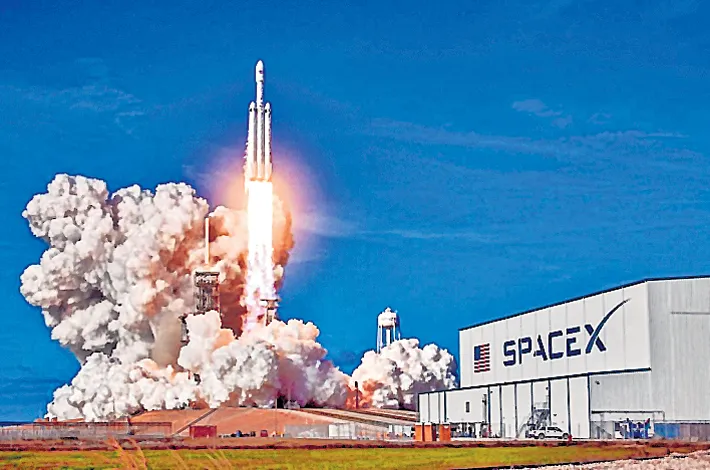The Crimson Thread
16-06-2025 12:00:00 AM

Meena’s eyes were red but dry, her voice steady. “He was careful,” she said, clutching a cup of tea. “Always said his work was just business, nothing more.” Vikram noted the silk sari she wore—crimson, like the thread. Coincidence? He pressed her gently, but she offered nothing beyond platitudes. As he left, he caught a glimpse of a man watching from across the street, his face half-hidden by a scarf. Vikram’s instincts flared, but when he crossed the road, the man was gone
In the dusty heart of Nizamabad, where the Godavari’s sluggish waters mirrored the city’s restless pulse, Inspector Vikram Rao stood over a body sprawled across the cracked tiles of an abandoned textile mill. The air was thick with the scent of rust and decay, but it was the blood—crimson, pooling beneath the victim’s slashed throat—that held Vikram’s gaze. The man, a local jeweler named Arjun Reddy, was no stranger to trouble. His name had surfaced in whispers of black-market deals, but this wasn’t a robbery gone wrong. The precision of the cut, the absence of struggle, screamed intent. Vikram’s gut churned. This was personal.
The mill, a relic of Nizamabad’s faded industrial glory, sat on the city’s edge, where slums bled into fields. It was 10 p.m., and the monsoon’s threat hung heavy, clouds bruising the sky. Vikram’s partner, Constable Lakshmi, swept her flashlight across the scene, her face grim. “No witnesses, sir. No CCTV. Just this.” She pointed to a crimson thread, barely a wisp, caught on a rusted loom near the body. Vikram crouched, his fingers hovering over it. Silk. Expensive. Out of place in this tomb of forgotten machines.
“Bag it,” he said, his voice low. “And get the forensics team here. Fast.”
Back at the station, Nizamabad’s chaotic pulse seeped through the walls—honking autorickshaws, vendors hawking biryani, the hum of a city that never slept. Vikram pored over Arjun’s file. Debts, yes. Enemies, plenty. But the thread gnawed at him. It wasn’t random. He sent Lakshmi to canvass the market, where Arjun’s shop sat nestled between sari boutiques and chai stalls. Meanwhile, Vikram visited the jeweler’s widow, Meena, in their modest flat above the shop.
Meena’s eyes were red but dry, her voice steady. “He was careful,” she said, clutching a cup of tea. “Always said his work was just business, nothing more.” Vikram noted the silk sari she wore—crimson, like the thread. Coincidence? He pressed her gently, but she offered nothing beyond platitudes. As he left, he caught a glimpse of a man watching from across the street, his face half-hidden by a scarf. Vikram’s instincts flared, but when he crossed the road, the man was gone.
Lakshmi returned with rumors. Arjun had been seen arguing with a local thug, Shankar, days before. Shankar ran a crew smuggling gold across the Telangana border, and Arjun’s shop was a known front. But Shankar was sloppy, all muscle and no finesse. The kill at the mill was too clean for him. Still, Vikram hauled him in. Shankar, sweating under the station’s flickering bulb, swore he’d been at a bar in Dichpally, thirty kilometers away, when Arjun died. His alibi held—barely—backed by a drunk bartender.
The crimson thread led nowhere. Forensics confirmed it was silk, dyed with a rare pigment sourced from a single supplier in Hyderabad. Vikram’s call to the supplier revealed they’d sold a batch to a Nizamabad tailor, Gopal, who specialized in bespoke saris. Gopal’s shop was a cramped hole-in-the-wall, its shelves bursting with vibrant fabrics. When Vikram showed him the thread, Gopal’s hands shook. “I sold a sari like that to Meena Reddy,” he stammered. “Custom order. Last month.”
Vikram’s pulse quickened. Meena hadn’t mentioned a new sari. He returned to her flat, this time with Lakshmi. Meena was unruffled, admitting she’d bought the sari but claiming it was still at the tailor’s for alterations. Gopal, however, swore she’d picked it up weeks ago. The lie was a crack in her facade, but Vikram needed more. He ordered a search of the flat. Nothing. No sari, no blade, no answers. Yet, as they left, Lakshmi spotted a faint smear of crimson dye on the doorstep, invisible unless you knew to look.
The case was slipping through Vikram’s fingers. He drove to the mill again, alone, under a moonless sky. The thread, the dye, Meena’s lie—they pointed to her, but why? Arjun’s debts were manageable, his affairs discreet. Then, a memory sparked. The man with the scarf. Vikram had dismissed him, but now he wondered. He pulled Arjun’s call logs, obtained after a bureaucratic fight. One number stood out—unlisted, frequent, always late at night. It traced to a burner phone, last pinged near the mill the night of the murder.
Vikram and Lakshmi staked out the mill the next night, rain lashing their jeep. At 1 a.m., a figure emerged from the shadows—scarf, lean build, moving with purpose. Vikram followed, heart pounding, as the man slipped inside. The mill was a maze of looms and debris, but Vikram’s flashlight caught a glint: a blade, tucked into the man’s belt. He lunged, tackling him. The scarf fell, revealing a face Vikram recognized—Ravi, Meena’s brother.
Ravi confessed under pressure. Meena had orchestrated it. Arjun’s smuggling had drawn police attention, risking her family’s name. She’d lured him to the mill, promising a deal, and Ravi had done the rest, his blade swift and silent. The crimson thread? A snag from her sari, unnoticed in the dark. Meena’s composure had been her mask, her brother her weapon.
As Vikram cuffed Meena at dawn, the rain stopped, leaving Nizamabad glistening under a fragile sun. The crimson thread had unraveled her lies, but the city’s pulse beat on, indifferent to one more broken thread in its tangled web.








